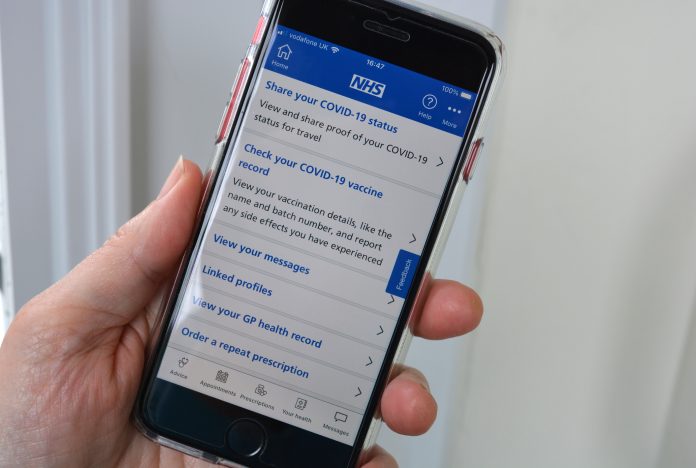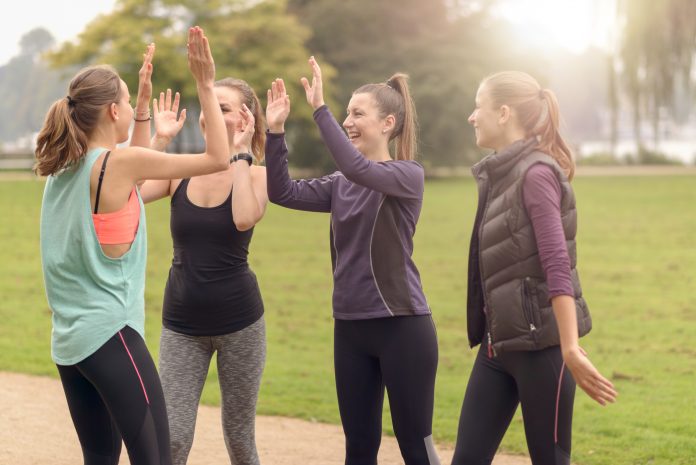Open Access Government produces compelling and informative news, publications, eBooks, and academic research articles for the public and private sector looking at health, diseases & conditions, workplace, research & innovation, digital transformation, government policy, environment, agriculture, energy, transport and more.
Home Search
wellbeing - search results
If you're not happy with the results, please do another search
NHS App services cut emissions from over 20,000 car journeys
By using the NHS App services, fewer people are commuting to their GPs for health advice - cutting 22,000 car journeys a month.
True or false? Can we improve mental health through diet and physical activity
Unravelling the short-term effects of diet and physical activity on their ability to improve mental health – the Eat2beNICE APPetite study.
The impact and recovery from COVID-19 for children in custodial settings
Dr Charlotte Lennox from the University of Manchester illustrates the health challenges for children in custodial settings and highlights a research project designed to develop health improvements and policy recommendations for future major incidents/pandemics.
Simplicity: Making complicated messages resonate with your audience
Simplicity of messaging is one of the hardest things to achieve, but it’s essential if you want to cut through to make an impact.
Volunteering is vital to the UK’s environmental and social goals
Volunteering is at the forefront of how the UK can achieve its environmental and social goals, by improving the Net-Zero movement, and holding vast economic significance.
Improving the quality of life for people with brittle bone disease: Osteogenesis Imperfecta
Pascale V Guillot, at the University College London, looks toward improving the quality of life for those with Osteogenesis imperfecta, a chronic health condition called brittle bone disease.
46% of the working population at risk of job burnout
Almost half of working people are at risk of job burnout, and people working from home are more likely to feel this way, as almost one in ten are burning out.
Tackling NHS waiting lists through effective workforce management
Tim Powlson and Sue Johnson Gregory, at Entec Si, discuss how a new approach to workforce management could help reduce NHS waiting lists.
Gender Affirming Hormone Therapy reduces suicidal ideation
People who undergo Gender Affirming Hormone Therapy have high grades of satisfaction with the physical and psychological effects – and have fewer suicidal thoughts.
A gendered view on ICT and social inclusion
Dr Sarah Mohammad-Qureshi, Equality, Diversity and Inclusion Partner at The University of Law, presents a gendered view on ICT and social inclusion.
eMOTIONAL Cities: Mapping cities through the senses of who make them
Funded by the European Commission’s Horizon 2020 Framework Programme, eMOTIONAL Cities is a 48-month project, with a total budget of nearly €5 million, that is designed to fully characterise the intensity and complexity of urban health challenges and inequalities.
Unhappiness on Instagram: Can we train algorithms to detect it?
Researchers are developing algorithms to detect unhappiness on social media, which identify the basic needs of users from the content they share.
Seven-day social media break can reduce depression and anxiety
While the negative side effects of scrolling through social media are well-known, social media breaks have been proven to change mental health outcomes.
Closing the literacy gap via catch-up programmes in education
Andrea Welter, assistant head teacher from Pheasey Park Primary School, explains why successful catch-up programmes in education need to focus on closing the literacy gap.
A fascinating look at optimal leisure lifestyle
Robert Stebbins, Professor Emeritus at University of Calgary in Alberta, takes a fascinating look at what we need to know about optimal leisure lifestyle
5 ways to boost ROI from hybrid working in healthcare
Keith Ali, MD at Creative ITC, explains how healthcare organisations can unlock the full benefits of remote and hybrid working in healthcare.
Can people alleviate depression with psilocybin microdosing?
Psychedelic use has been found to have positive effects on mental disorders – now, psilocybin microdosing shows hope for relieving depression.
Private school education does not lead to better mental health
A national survey finds that state school pupils are just as happy with their lives as counterparts who received private school education.
UN report: Could we be on a path to doubling the 1.5 degree limit?
The latest UN climate report warns the lack of time the world has to reduce its global warming to the 1.5 degree limit - it’s ‘now or never’ until a global environmental breakdown.
Ten ways to protect employee mental health during a global crisis
The last two years created psychological strain, with the pandemic sparking feelings of uncertainty about both professional and personal futures - creating issues for employee mental health.





















